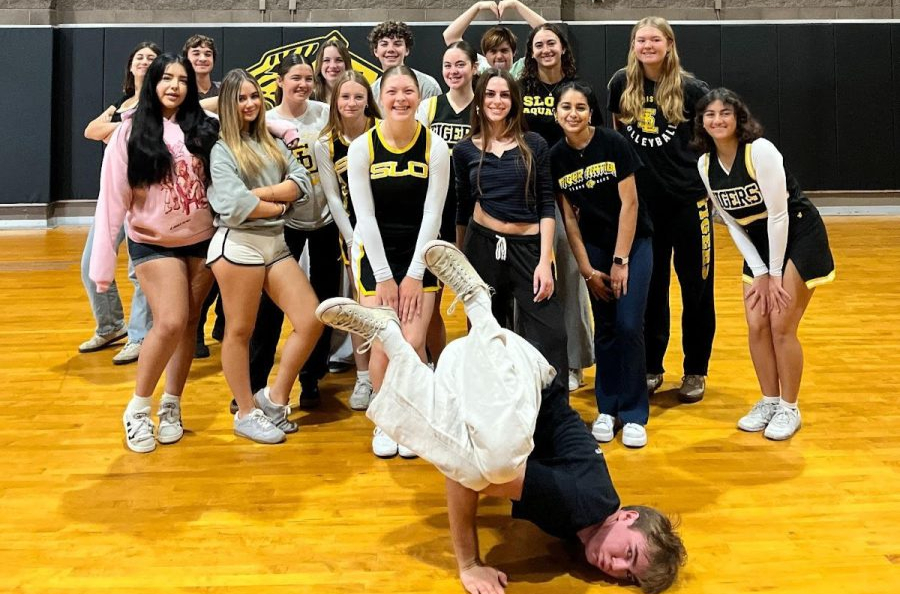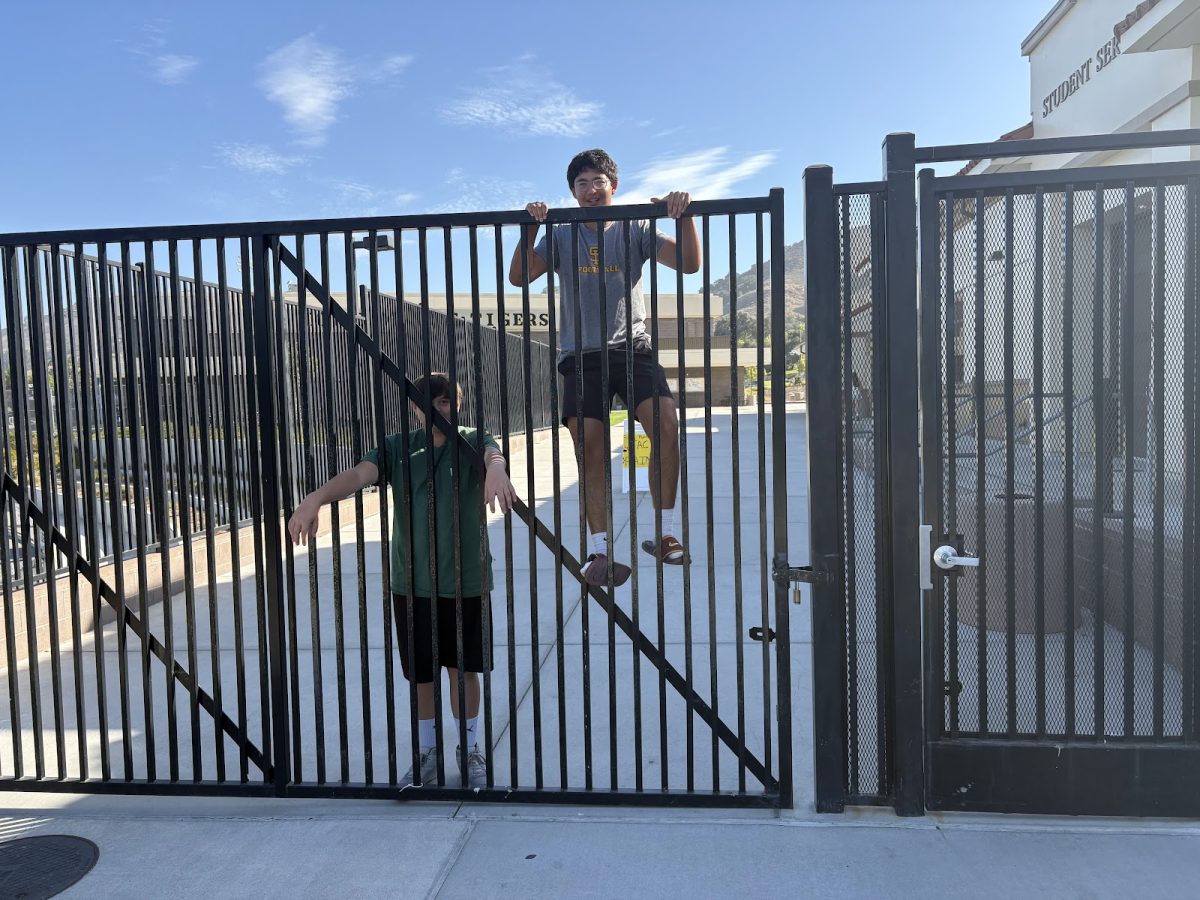AP vs Honors classes SLOHS students navigate the options that will boost their GPA and will help students prepare the best for college. Photo illustration courtesy of sophomore Addison Hopple.
Many San Luis Obispo high school students are either taking honors or AP classes to help boost their GPA and to enrich their college applications. As students take multiple AP classes a trimester, free time is soon filled with late night studying and usually hours of homework. Usually it’s worth at least taking a couple of AP classes throughout a student’s four years of high school as AP classes can be good preparation for the future and if you succeed they can boost your GPA. But taking too many AP classes can lead to an overwhelming amount of school work. So taking less AP classes and including honors classes in a student’s schedule can create a good balance.
Though honors classes can entail requirements of hard work and determination, AP classes create a larger workload and can be more demanding than the honors classes that are offered.
Honors classes require learners to complete more work than regular courses, and AP classes can be even more demanding. While honors classes feature advanced high school coursework, AP classes are designed to mirror college-level coursework.
Taking one AP and an honors class can lead to better grades and an overall enjoyment during the school year because when taking too many AP’s are harder to balance and manage.
“I think AP classes are different from honors classes because they are harder class because AP is honors just with the added test at the end of the year, and they usually require more homework and more focus needed in classes to remember all the info for the test in May,” said senior Celine Shroeter Heptig.
The AP test is very stressful for students because of the pressure to perform well, as it can affect college admissions and students can earn college credit. For students who take multiple AP classes it can be challenging and overwhelming to prepare for each class test, so balancing study materials with other responsibilities usually leads to late nights. Studying with self-care is important to help manage challenging courses. A student’s mindset in AP classes is usually different from honors as they need to stay on top of their school work and have to be able to focus in class.
“In AP classes I tend to be much more focused on preparing for tests and making sure I understand everything for the AP test where as honors classes I am more focused on getting my work done not studying and memorizing,” said sophomore Malia Priola
While AP classes are more challenging than most honors classes at SLOHS, that doesn’t mean honors classes aren’t demanding in their own way. They still require significant time and effort for studying and completing assignments. In many ways, honors classes can be seen as an introduction to the difficulty of AP coursework. Balancing one AP class with an Honors course can be a more effective way to boost a students GPA instead of creating overwhelming stress by overloading with AP classes.
“I think AP classes are definitely harder but that doesn’t mean honors classes are easy, but yes AP classes are harder because of the work and how it is at a faster pace, because there is more information that you have to take in,” said sophomore Gabby Foster.
In the end, don’t wear yourself out by taking a bunch of AP classes each trimester. Create a balance with honors classes as well, as both paths provide valuable lessons that shape your future through hard work and determination. So, Tigers, stay focused because success is just around the corner.
Sources: collegereadinesscom

































